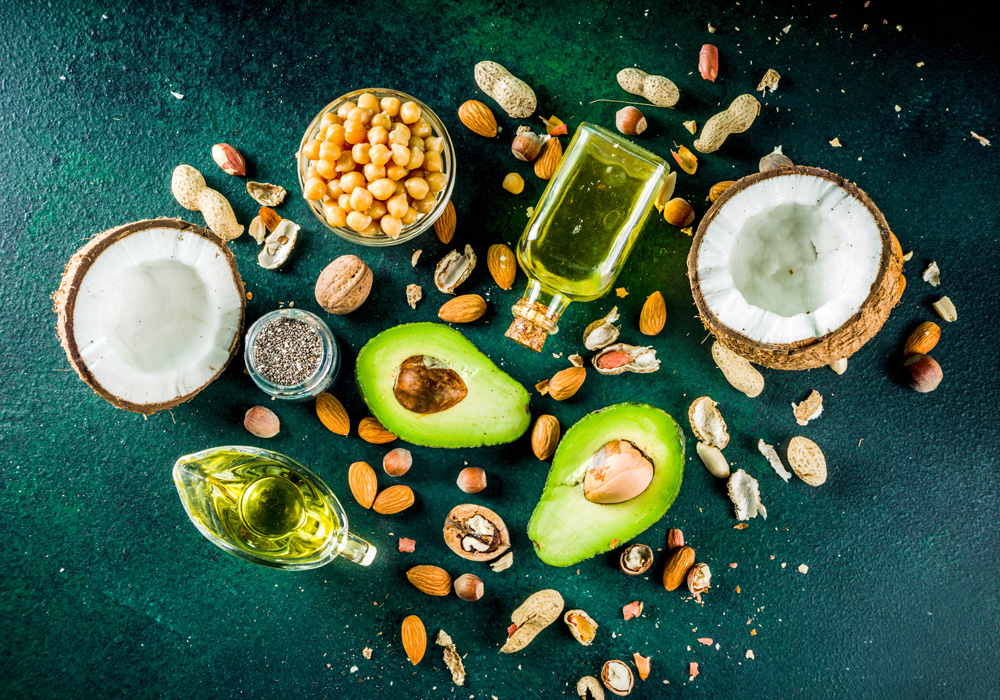Acne is a skin disease, which is mainly caused due to our body’s reaction to large amounts of hormones (testosterone), bacteria and common allergies to various foods. It usually occurs during adolescence, though it may affect adults too. The most common form of acne is the so-called “common acne”, which mostly affects the face and upper neck as well as the back, chest and shoulders.
Hormonal activity, accumulation of bacteria into the pores, dead skin cells, intense stress or possible irritations that cause inflammation are just some of the factors associated with the appearance of acne.

Choose the right foods
Several studies suggest that a healthy diet contributes to the prevention and treatment of common acne. Include in your daily diet plan:
Foods high in omega-3 fats: Omega 3 fatty acids have anti-inflammatory action, helping to reduce inflammation throughout the body, including our largest organ, the skin. Aim to eat fatty fish, such as sardines or salmon, tahini, seeds (e.g. flaxseed) and raw unsalted nuts (e.g. walnuts).
Foods high in zinc: Zinc affects the amount of vitamin A stored in the tissues, which can reduce sebum production and, therefore, the symptoms of acne. Foods high in zinc include oysters and generally shellfish, meat, legumes, seeds and nuts.
Fiber: Fiber is a valuable ally in the problem of acne due to its low glycemic index. Thus, consume whole grain foods, fresh fruits and vegetables.
On the other hand, it is advisable to avoid eating foods high in glycemic index, such as sugar and simple carbohydrates. These foods dramatically raise blood sugar by releasing a hormone called insulin. Excess insulin in the blood can cause the sebaceous glands to produce more oil, increasing the risk of acne. Foods with high glycemic index include sweets, soft drinks, pasta, white bread, white rice and sugar. Chocolate may also cause acne breakouts, as it is high in sugar. Don’t get disappointed though. You can replace it with a cup of hot cocoa drink!
In any case, you should remember that every organism is different. Try to figure out what “helps” you, while discarding foods that trigger your problem. Finally, always consider any food allergies or sensitivities before you start making changes to your diet. For sure, you shouldn’t neglect the proper and frequent cleansing of your skin. If the symptoms of acne persist, consult your doctor to help you deal with it effectively.
